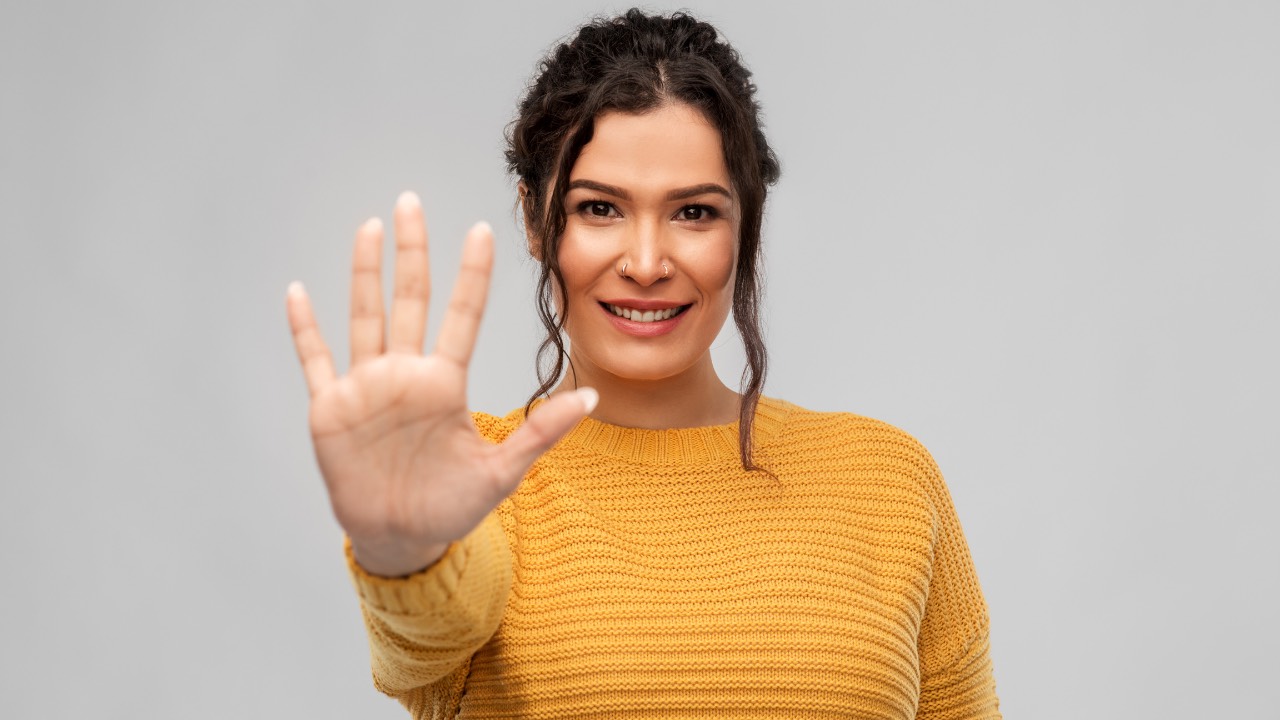The 5 Surprising Things That Get Easier When You Stop Drinking (And 3 That Get Harder)
Nov 01, 2025
Everyone tells you about the obvious benefits of going alcohol-free: better sleep, clearer skin, more energy, no hangovers. But after coaching women through their alcohol-free journeys, I've noticed surprising patterns in what actually gets easier - things nobody mentions in the typical "benefits of quitting" lists - and what gets unexpectedly harder, even months into the journey.
The easier parts aren't always what you'd predict. Yes, mornings are clearer, but what really surprises women is how much easier other aspects of life become when alcohol is removed from the equation. Decision-making. Emotional regulation. Even grocery shopping. These unexpected simplicities often provide more motivation than any health benefit because they fundamentally change how you move through your daily life.
But honesty requires acknowledging what gets harder too. Not the obvious things like navigating parties or dealing with cravings - you expect those challenges. I'm talking about the surprising difficulties that catch you off guard three months in, when you thought the hard part was over. By understanding both sides of this equation, you can prepare for the full reality rather than being blindsided by unexpected challenges or missing the subtle improvements that make it all worthwhile.
- The 5 Surprising Things That Get Easier -
1. Making Decisions (All of Them, All Day Long)
The mental clarity everyone promises isn't just about big decisions or morning fog - it's about the thousand micro-decisions you make daily that suddenly require zero effort. What to wear becomes obvious. What to cook for dinner doesn't require a committee meeting in your head. Whether to go to that event has a clear yes or no. The decision fatigue that used to plague your days simply evaporates.
This happens because alcohol affects your prefrontal cortex long after the buzz wears off. Even moderate drinking creates a subtle cognitive fog that makes every decision feel slightly harder than it should. When you remove alcohol, your brain's executive function operates at full capacity all the time. Decisions that used to drain your mental battery now happen almost automatically. You trust your judgment because it's no longer clouded by last night's wine or this afternoon's "will I or won't I drink tonight" mental debate.
The cumulative effect is profound: you have energy left at the end of the day because you haven't spent it agonizing over minor choices. Your confidence grows because you're making decisions from a place of clarity rather than fog. You become someone who knows what she wants and acts on it, rather than someone perpetually second-guessing herself.
2. Managing Your Money (Without Even Trying)
The financial ease extends far beyond the obvious savings from not buying alcohol. Your entire relationship with money shifts when you're not making impulse purchases through a wine haze. That Amazon cart you filled after two glasses? Empty. The premium groceries you bought because "wine made you feel fancy"? Regular groceries now. The Uber rides, the rounds you bought, the "treat yourself" mentality that alcohol enabled? Gone.
But here's what really changes: you start seeing money as energy to be directed rather than something that mysteriously disappears. Without alcohol fuzzing your financial judgment, you naturally make better choices. You notice patterns in your spending. You plan purchases rather than react to impulses. You question whether you actually want something or if it's just filling a gap that wine used to fill.
Women consistently report saving hundreds, sometimes thousands of dollars monthly - not just from alcohol but from the entire ecosystem of spending that surrounded their drinking. That money becomes available for things that actually improve your life: the gym membership you actually use, the therapy that changes everything, the vacation you remember, the coaching that helps you grow.
3. Setting and Maintaining Boundaries (Like It's Your Superpower)
Without alcohol softening your edges and making you agreeable to things you don't want, boundaries become surprisingly natural. The word "no" loses its sharp edges and becomes a neutral tool. You stop over-committing to avoid disappointing people. You leave events when you're ready, not when it's socially acceptable. You protect your energy like the finite resource it is.
This boundary clarity extends into every relationship. You stop accepting behavior you previously tolerated with wine's help. You communicate needs directly instead of hoping others will guess. You recognize manipulation and guilt trips immediately because your clarity makes them obvious. The people-pleasing that felt mandatory becomes optional, and you often opt out.
The surprising part is how little pushback you actually receive when you set clear boundaries from a sober, centered place. People respond to the quiet authority of someone who knows what they will and won't accept. Your relationships either improve because they're based on authentic interaction, or they fade because they required you to be smaller than you are.
4. Connecting with Your Actual Feelings (Instead of Performing Them)
Emotional authenticity becomes effortless when you're not curating your feelings through alcohol's filter. You feel sad when you're sad, without wine making it tragic. You feel joy when you're joyful, without champagne making it performative. You feel angry when you're angry, without alcohol turning it into rage or suppression. Your emotions become information rather than emergencies.
This emotional clarity makes relationships easier because you're responding to what's actually happening rather than what wine makes you think is happening. You stop creating drama where none exists. You stop minimizing real issues that need attention. You communicate from your actual feelings rather than alcohol's amplified or numbed versions.
The surprise is how much energy you were spending managing alcohol-influenced emotions. The tears that weren't really about what you thought they were about. The anxiety that was partially withdrawal. The irritability that was dehydration and disrupted sleep. When your emotions align with reality, they become manageable, even when they're difficult.
5. Enjoying Simple Pleasures (That Were Always There)
The capacity for genuine enjoyment expands dramatically when you're not comparing every experience to drinking or thinking about when you can drink. A cup of morning coffee becomes a complete experience. An evening walk satisfies without needing wine after. A good book absorbs you completely without a glass at your side. These simple pleasures were always available; alcohol just made you think they weren't enough.
Food tastes more complex and satisfying when your palate isn't dulled. Conversations go deeper when everyone's fully present. Sunsets look more beautiful when you're not viewing them through wine goggles. Sleep feels more luxurious when it's natural. These aren't new pleasures - they're existing pleasures finally experienced fully.
The cumulative effect is that life feels richer while being simpler. You need less external stimulation because internal satisfaction increases. You stop chasing the next thing because this thing—this moment, this experience, this simple pleasure—is enough.
- The 3 Things That Get Unexpectedly Harder -
1. Sitting with Other People's Discomfort (When You're Not Numbing Yours)
When you stop drinking, you lose the buffer that made other people's dysfunction tolerable. Your mother's passive aggression lands with full force. Your friend's constant complaining feels exhausting. Your partner's avoidance patterns become glaringly obvious. You see everyone's coping mechanisms clearly, and it's uncomfortable to witness what you previously helped enable or ignored.
The challenge isn't just seeing it - it's managing your response without your old tool. You can't wine your way through family dinner when dad gets political. You can't champagne-toast your way past your friend's toxic relationship patterns. You have to sit there, fully present, while people you love make choices you can see are hurting them, and you can't fix it or blur it out.
This difficulty often peaks around months 3-6, when your own clarity has stabilized but you haven't yet developed skills for managing others' chaos without absorbing it. You might feel judgmental, impatient, or isolated. You might wonder if you were happier when you couldn't see so clearly. This is normal and temporary, but nobody warns you how hard it is to be clear-eyed in a world that's still drinking.
2. Creating New Celebrations and Rewards (That Feel as Immediate as Wine Did)
Wine was an instant reward that required zero creativity. Hard day? Wine. Big achievement? Wine. Friday? Wine. Now you need actual strategies for celebration and comfort, and nothing feels as immediate or effortless as pouring a glass did. This isn't about missing wine - it's about the gap where easy comfort used to live.
Building new reward systems takes time and experimentation. The bath doesn't hit the same way. The fancy mocktail feels like costume jewelry. The exercise endorphins take effort to access. You know these healthier rewards are "better" for you, but they don't provide the instant shift that wine did. You have to actively create celebration rather than passively pour it.
This challenge persists longer than expected because you're not just replacing a drink - you're rebuilding your entire reward architecture. You're learning to celebrate without numbing, to comfort without escaping, to transition from work to evening without a chemical marker. It's sophisticated psychological work disguised as simply "finding new treats."
3. Accepting That Some Relationships Were Only About Drinking (And Letting Them Go)
The hardest unexpected truth is discovering that some relationships you valued were primarily vehicles for drinking together. Without wine, you have nothing to talk about. Without the bar, you have nowhere to meet. Without the shared buzz, you don't actually enjoy each other's company. This realization hurts, especially when it involves people you've known for years.
These aren't just casual drinking buddies - sometimes they're colleagues you thought were friends, family members you thought you were close to, or couple friends you've vacationed with for decades. The relationship might not end dramatically; it just fades once drinking is removed. They stop calling. You stop reaching out. The connection that felt meaningful reveals itself as conditional.
The grief is complicated because you're mourning relationships that maybe weren't what you thought they were. You question whether the connection was ever real. You wonder if you're being judgmental or if they're being unsupportive. You have to rebuild your social circle in midlife, which feels more daunting than it would have at 25. This social reconfiguration is necessary but nobody prepares you for how long it takes or how much it hurts.
The ledger of easier versus harder isn't as simple as wellness influencers or sobriety coaches might have you believe. Yes, many things get surprisingly easier - your mental clarity improves every single decision, your emotional life becomes more authentic, your boundaries practically set themselves, and simple pleasures reveal their full richness. The cumulative effect of these "easier" aspects transforms daily life in ways you couldn't have imagined.
But the harder parts are real too, and they last longer than the initial withdrawal period. Seeing others' dysfunction clearly when you can't blur it out anymore. Building new reward systems from scratch. Discovering that some relationships were just drinking partnerships dressed up as friendship. These challenges don't mean you're doing it wrong - they're evidence you're doing the deep work of transformation rather than just removing a substance.
The truth is that what gets easier or harder depends partly on your personality, your history with alcohol, your support system, and your specific life circumstances. Your journey won't look exactly like anyone else's. Your "easier" list might include things others struggle with, and your "harder" list might contain surprises nobody else mentions. This is why understanding your unique alcohol-free personality type matters more than following generic advice.
Ready to discover what will be easier and harder for your specific personality type? Take my "What's Your Empowered Alcohol-Free Personality?" quiz to uncover your unique strengths and challenge areas, receive personalized strategies for both the easier and harder aspects, and get specific tools designed for your personality type. Knowing your type helps you leverage what comes naturally while preparing for what doesn't.
CLICK HERE TO TAKE THE FREE QUIZ!




